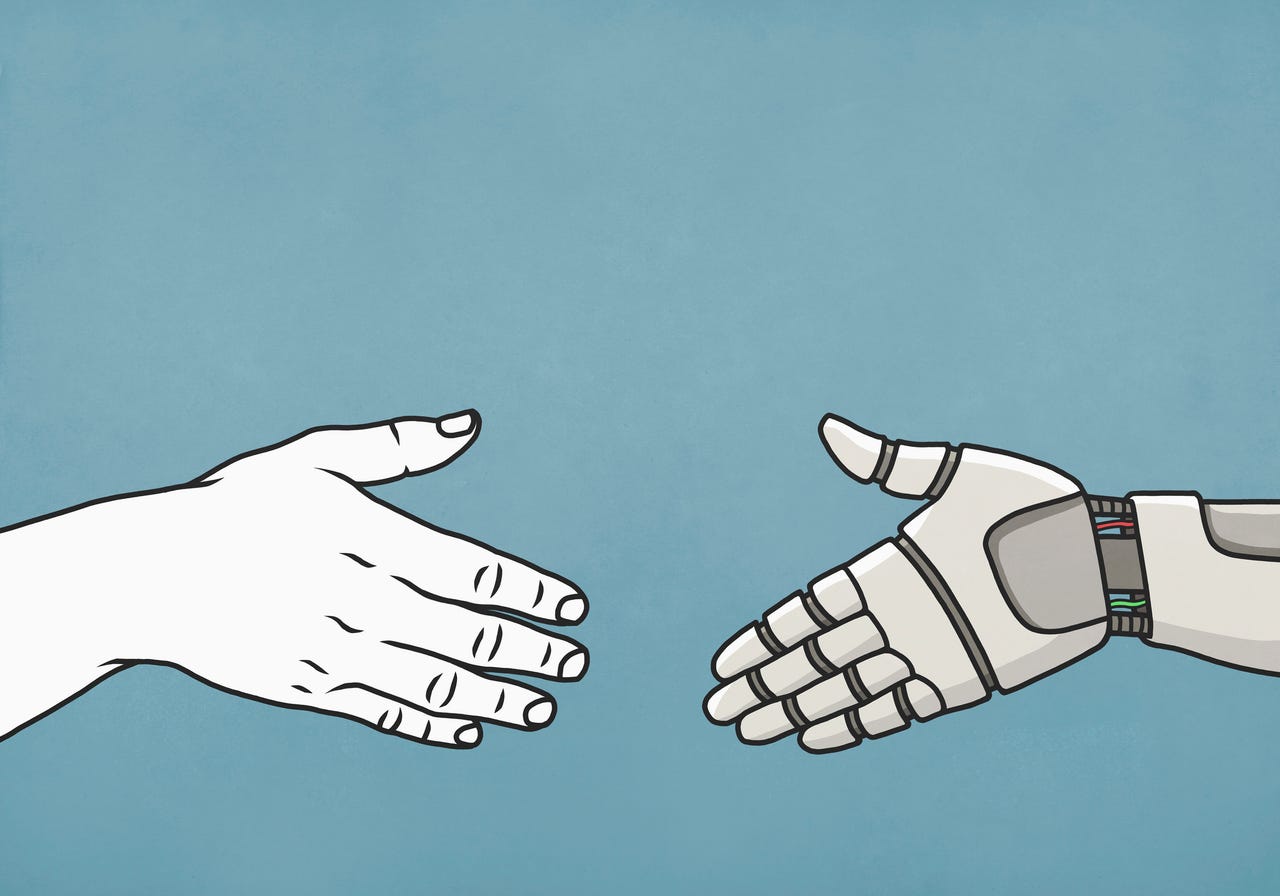Two-thirds of professionals think AI will increase their skills' value


Amidst the recent AI boom, there has been a lot of concern about whether AI will displace workers. A new report, however, shows that many professionals are more optimistic about the rise of AI.
Thomson Reuters's Generative AI & the Future of Professional Work report surveyed 1,200 professionals in North America, South America, and the UK regarding their thoughts and experiences about AI.
Also: One in four tech professionals are ready to leave their jobs, survey reveals
Of the professionals surveyed, 64% said they expect their professional skills to be "more highly prized" over the next five years. Twenty-four percent of those respondents see that positive change occurring in the next 18 months while 40% see it happening between 18 months and five years from now.
On the other hand, when asked how likely AI was to cause the demise of their profession with their skills no longer being in demand, 66% said that they did not expect that change to happen.
Also: This AI-generated crypto invoice scam almost got me, and I'm a security pro
The respondents likely feel like their skills will increase in demand because, despite AI's advanced capabilities, there are human attributes that AI will likely never be able to do as well as a human, such as people skills, higher level analysis, and thinking outside of the box.
When asked what aspects of AI the professionals fear the most, the biggest fear wasn't job loss (19%) but actually compromised accuracy (25%).
The fear stems from people using AI, such as chat tools, for research and taking the results at face value, not realizing the inaccuracy of the results, which could spread misinformation.
Also: ElevenLab's AI voice-generating technology is expanding to 30 languages
"Clients will use AI in their own research, which may give them a false understanding of the issues of the case," a lawyer respondent pointed out in the report.
This fear highlights the need for human evaluation when using generative AI tools, as well as the need for additional guardrails in AI models that help improve their accuracy and reliability.
Also: YouTube touts AI principles to protect music creation
Lastly, 68% of the respondents reported anticipating an increase in work done by those without traditional qualifications.
Furthermore, two-thirds of respondents believe that AI will prompt the creation of new career paths. The report uses the example of tasks shifting from a JD or CPA to an employee with professional licensure, such as a paralegal or junior professional that can leverage AI tools.
Also: 5 ways to explore the use of generative AI at work
We have also already seen the emergence of new roles that haven't existed before, such as prompt writing, which pays individuals to develop prompt inputs for chatbots to meet business goals.